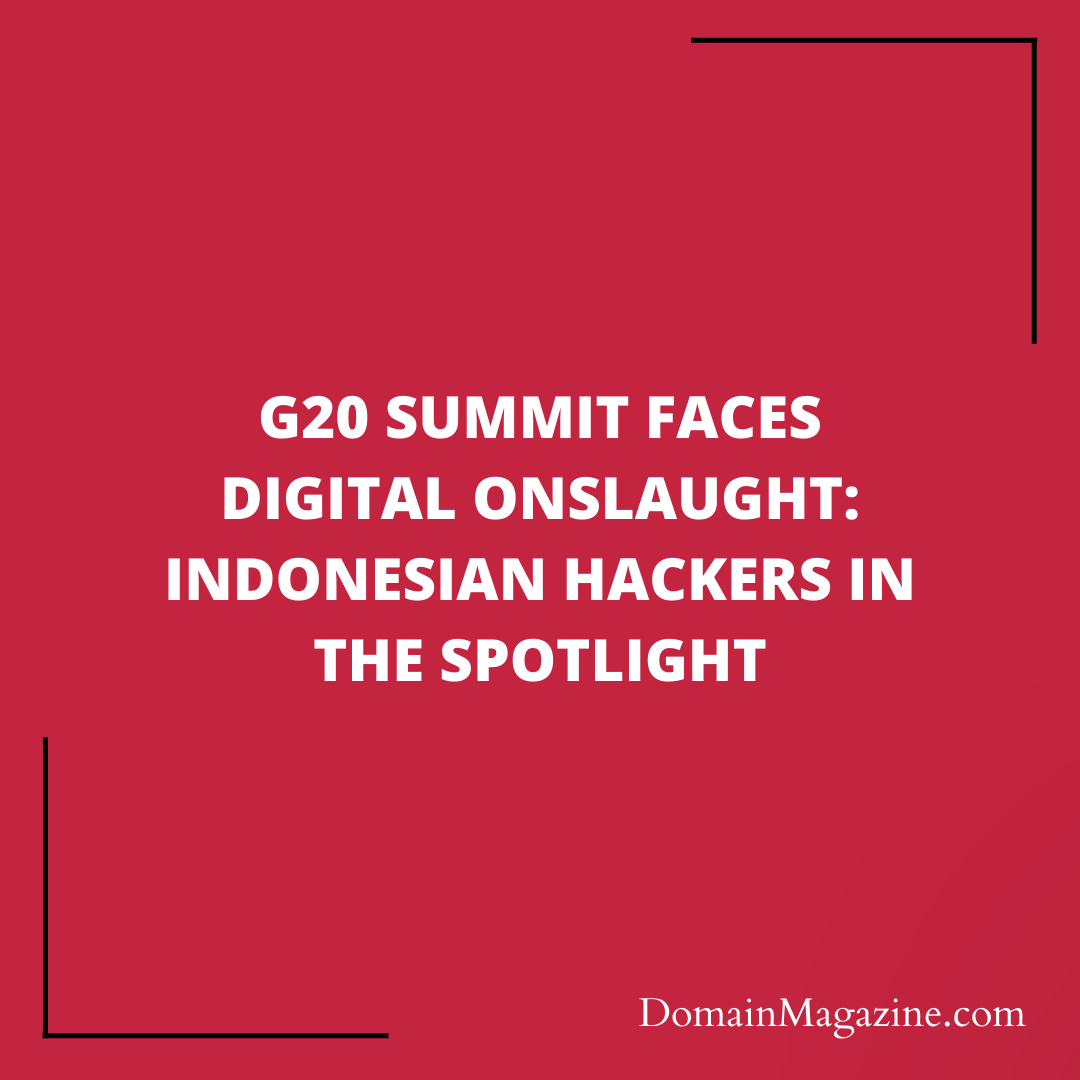The world’s attention is focused on New Delhi, India, as it prepares to host the highly anticipated 2023 G20 Summit from September 9th to 10th. This international event brings together leaders from 40 nations, including the 20 member states, to discuss critical global issues. However, amidst the preparations and excitement, a shadow of cybersecurity threats looms large, as hackers from Indonesia launch a cyber operation known as #OPINDIA. This article delves into the significance of the G20 Summit and how hackers are using deceptive methods to overshadow this pivotal event.

Understanding the G20 Summit:
The G20, short for the Group of Twenty, is a prestigious intergovernmental forum established in 1999. Its primary goal is to foster international economic cooperation and coordination among the world’s major economies. Comprising 20 member countries, including the United States, China, Russia, Germany, and many others, the G20 has played a pivotal role in addressing global challenges such as the 2008 financial crisis and the ongoing COVID-19 pandemic.
The 2023 G20 New Delhi Summit holds particular significance as it marks India’s debut as a host nation for this esteemed gathering. India, situated in South Asia, views this summit as a momentous opportunity to showcase its growing economic and political influence on the global stage. The chosen theme, “One Earth, One Family, and One Future,” underscores the importance of unity and cooperation in addressing pressing global issues.
The Cyber Threat Looms:
In the digital age, no major event is immune to cyber threats, and the G20 Summit is no exception. A network of hacker groups, predominantly of Indonesian origin, has announced a cyber-attack operation, #OPINDIA, aimed at disrupting India’s digital infrastructure during the summit. These cyber threat actors have singled out Indian websites, with attacks scheduled to commence on the first day of the summit, September 9th.
The cyber intelligence platform Falcon Feeds was the first to report on the looming threat. It identified several hacker groups, including Jambi Cyber Team and Ganosec Team, involved in planning these cyber attacks. Nandakishore Harikumar, CEO of cybersecurity firm Technisanct, emphasized that law enforcement authorities have been alerted about this threat, and they are actively monitoring the situation.
#OPINDIA: A Coordinated Effort:
Beyond the primary hacker groups involved, a broader network of smaller affiliate groups has joined the #OPINDIA operation. These groups are actively coordinating their efforts using cloud-based messaging platforms like Telegram. The motives behind these attacks appear to be political and religious, adding an unsettling dimension to the threat.
Indian authorities have been on high alert, with various agencies such as CERT-In, NCIIPC, I4C, Delhi Police, IB, R&AW, NIA, and CBI working collaboratively to bolster cybersecurity measures ahead of the G20 Summit. Their objective is to identify and mitigate potential cyber vulnerabilities that could be exploited by threat actors.
Targets and Methods:
So far, the attacks have targeted a combination of Indian government organizations and private businesses. Private sector websites in industries such as logistics, pharmaceuticals, banking, and media have faced threats. The attacks have typically involved distributed denial-of-service (DDoS) activities and website defacement.
Conclusion:
The 2023 G20 New Delhi Summit is a landmark event for India, presenting an opportunity to demonstrate its global influence and leadership on critical issues. However, the dark cloud of cyber threats, driven by hacker groups with political and religious motives, threatens to overshadow this momentous gathering.
The international community, along with Indian authorities, is closely monitoring the situation, working tirelessly to fortify cybersecurity defenses. As the world watches, it is a stark reminder that in our interconnected digital age, even the grandest events are not immune to the disruptive forces of cybercrime. The success of the G20 Summit will not only be measured by the outcomes of its discussions but also by its ability to thwart these cyber threats and emerge stronger, united, and undeterred.


Join the Discussion